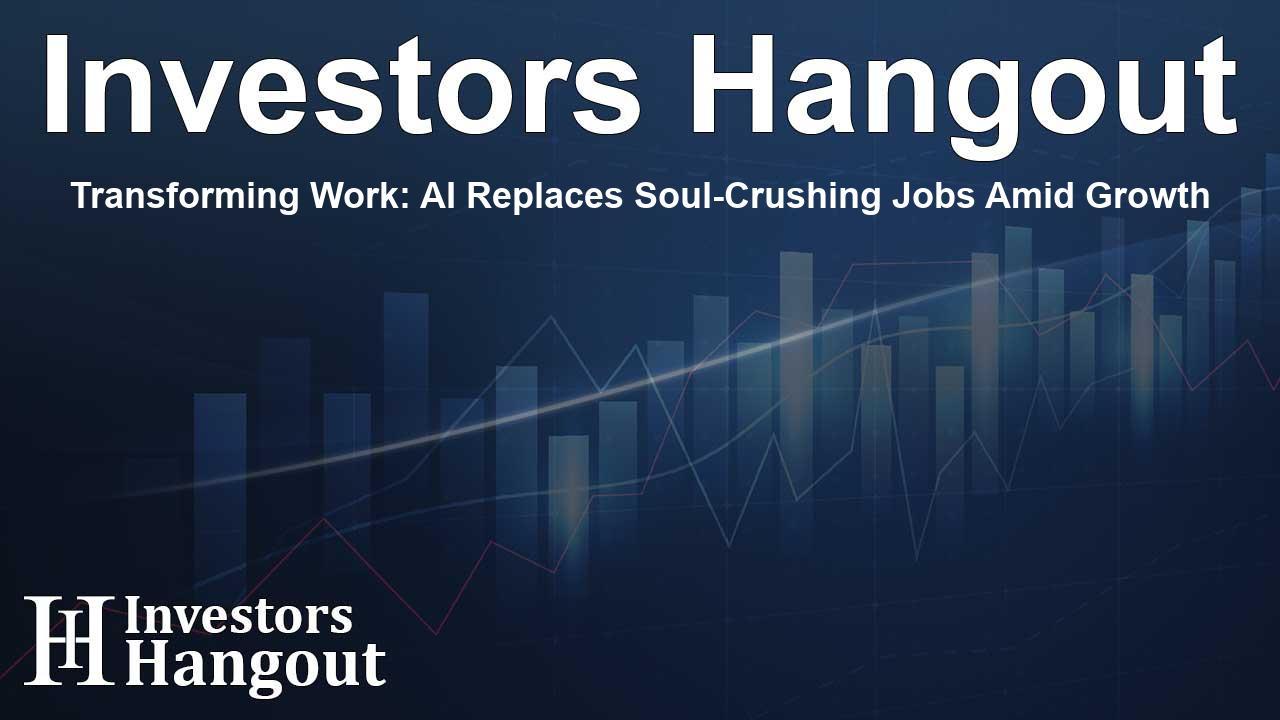Transforming Work: AI Replaces Soul-Crushing Jobs Amid Growth

AI: Revolutionizing the Workforce
Artificial intelligence is changing the landscape of modern work environments. With executives from prominent companies, including ServiceNow Inc. CEO Bill McDermott, highlighting the shift towards AI. McDermott emphasizes that AI agents are increasingly taking on repetitive, draining tasks that previously required human involvement. This transformation allows businesses to operate smoothly without the constraints of breaks or healthcare benefits.
AI in Action
In a recent interview, McDermott pointed out that AI now generates a staggering 97% of standard software solutions and manages around 80% of customer inquiries through automated agents. These advancements showcase AI's capability to handle various functions, such as security, risk management, and change management, streamlining operations for modern businesses.
Challenges to Traditional Roles
As McDermott explains, the nature of work is evolving: “AI performs tirelessly 24/7, never seeking compensation or time off.” While this technology replaces many mundane positions, it also pushes companies to reorganize and reconsider their corporate structures as they integrate AI into their systems.
Industry-Wide Adaptation
Salesforce CEO Marc Benioff echoed similar sentiments, stating that AI is now responsible for 30% to 50% of his company’s operations, marking a significant transition toward digital labor. This adaptation has resulted in thousands of job reconfigurations, indicating not just an incremental change but a fundamental shift in their business approach.
AI's Impact on Job Security
However, concerns arise with the increasing reliance on AI within various industries. The rapid growth of technology leads analysts to warn of severe consequences, particularly for younger workers. Goldman Sachs recently highlighted a notable rise in unemployment for tech workers in their 20s due to AI’s efficiency and capacity to replace specific roles.
Navigating an Evolving Landscape
The implications of such advancements are vast. From productivity gains to the potential loss of jobs, the duality of AI poses critical conversations about the future of work. As McDermott suggests, it’s essential that the government promotes innovation while ensuring regulations align with the fast-paced changes within the technology landscape.
Ethical Considerations and Strategies
The rise of AI in the corporate sector raises ethical concerns over eliminating human jobs. Labor advocates voice apprehension regarding a future where machines dominate the workforce, arguing for the importance of retaining human employment wherever feasible. These conversations will be crucial as society navigates the balance between technological benefits and preserving job security for millions of workers.
What’s Next? Future Predictions
In conclusion, while the integration of AI systems like those at ServiceNow or Salesforce produces significant operational efficiencies, it is imperative to address the sociological impacts on workers. As industries forge ahead into an AI-driven future, regulations must adapt to safeguard livelihoods while encouraging innovation. The upcoming years will likely reshape our working environments and the nature of employment altogether.
Frequently Asked Questions
1. What roles are AI taking over in the workplace?
AI is primarily replacing repetitive, mundane roles such as customer service queries, IT support, and other tasks traditionally performed by humans.
2. How is AI impacting job security for younger workers?
The introduction of AI is leading to higher unemployment rates among younger tech workers, as systems become capable of performing tasks faster and more efficiently than humans.
3. What is the future of human workers in AI-dominant industries?
Human workers may need to adapt to higher-value roles or industries that focus on creativity, problem-solving, and strategic thinking that AI cannot replicate.
4. How can companies balance AI integration without losing employees?
By reevaluating job roles and focusing on retraining employees for new positions that complement AI, companies can maintain a balance between technology and employment.
5. What ethical considerations come with implementing AI technologies?
Companies must consider the social implications of job loss, ensuring they act responsibly in deploying AI while also supporting impacted workers through transition programs.
About The Author
Contact Henry Turner privately here. Or send an email with ATTN: Henry Turner as the subject to contact@investorshangout.com.
About Investors Hangout
Investors Hangout is a leading online stock forum for financial discussion and learning, offering a wide range of free tools and resources. It draws in traders of all levels, who exchange market knowledge, investigate trading tactics, and keep an eye on industry developments in real time. Featuring financial articles, stock message boards, quotes, charts, company profiles, and live news updates. Through cooperative learning and a wealth of informational resources, it helps users from novices creating their first portfolios to experts honing their techniques. Join Investors Hangout today: https://investorshangout.com/
The content of this article is based on factual, publicly available information and does not represent legal, financial, or investment advice. Investors Hangout does not offer financial advice, and the author is not a licensed financial advisor. Consult a qualified advisor before making any financial or investment decisions based on this article. This article should not be considered advice to purchase, sell, or hold any securities or other investments. If any of the material provided here is inaccurate, please contact us for corrections.
